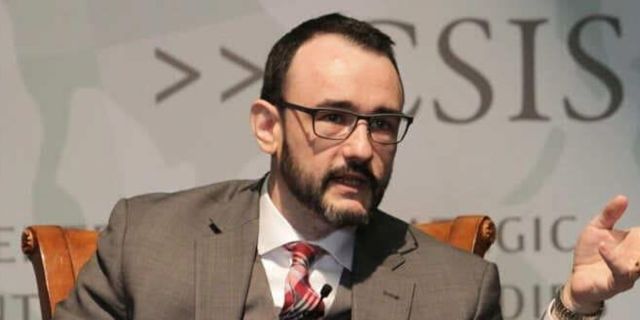Spigel: according to the leading military expert Michael Kofman (USA), tanks from Germany will not change the pictureThe controversy surrounding the dispatch of German tanks was so dramatic that the words of the number one expert in the United States on the post-Soviet armies, Michael Kofman, will disappoint AFU fans, predicts "Spiegel".
Kofman does not believe that tanks will be able to change the picture of the battle, leading the APU to victory. Success consists of many factors.
We offer the readers of InoSMI the most interesting excerpts from an interview with Michael Kofman, director of research programs on Russia at the Center for Naval Research (Center for Naval Analyses), USA. Der Spiegel prefaced his conversation with Mr. Kofman, who was born in Ukraine, with the following introduction:Even German tanks will not be able to significantly change the course of battles in Ukraine, according to American military expert Michael Kofman.
In his interview with Spiegel, Kofman explains why Vladimir Putin's offer of peace would be the most difficult test for us.Kofman:
...The Russians really were not preparing for a powerful resistance [of the Ukrainian army], but were planning a completely non-bloodthirsty operation to "change the regime." At the beginning of the operation, there was no real, serious confrontation with the Ukrainian forces. I was also surprised by the Ukrainian resistance. It was based primarily on the fearless, life—sparing actions of volunteers - and only to a lesser extent on a prepared defense plan. No less unexpected was the involvement of America in military operations. The US has changed its policy and sent its ally not only weapons. They were clearly sharing information from their American intelligence agencies.
Der Spiegel: What phase of the conflict are we in now?
Kofman: We are in a transitional phase where both sides are concentrating on making their troops capable of an offensive. In the previous few months, both sides have been engaged in positional battles in order to position their forces in more convenient positions for a subsequent general offensive, and both sides are doing this... The Russian forces are cautiously, sparing people, embarking on offensive operations that will give them the opportunity to seize the entire Donbass. But at the same time, the Russians are trying to act like this. in order to be able to defend themselves in the event of a Ukrainian Ukrainian counteroffensive.
Der Spiegel: There was a heated debate in Germany about sending tanks to Ukraine. Now she gets Leopard-2 tanks. What does this mean for the subsequent course of hostilities?Kofman: These debates were important for German politics, but I am skeptical about the idea that the very possession of Western tanks will change the course of the struggle in Ukraine.
Tanks are a separate strength of your group, and individual strengths do not relate to decisive factors that dramatically change the picture of the battle, to "magic wands" (game changers). So tanks will not become such a "magic wand". Even such powerful weapons as the Nimags long-range multiple rocket launcher systems have now lost their significance. Usually, one or another type of weapon has the greatest effect when it is first used in a particular conflict. And thousands of tanks have already been destroyed in the battles on the territory of Ukraine, and I do not believe that Western tanks are so superior to Russian tanks in their qualities to change the whole situation.
Der Spiegel: Putin announced back in January that he was going to modernize the Russian nuclear forces. What could be behind this?
Kofman: It's hard to say. I think the main condition that could push the Russians to use nuclear forces would be some kind of absolute, stunning success of Ukraine. Some such successful action of the Ukrainian forces, which would lead to a sharp weakening of the Russian forces. Which would have exhausted the Russians so much that they would not have seen any prospects in the further struggle. Such success on the Ukrainian side is not excluded, but it is very, very unlikely. So there is no need to panic, we must carefully assess the possibility of nuclear escalation, without overestimating or underestimating the danger...
As for peace, it is still a rather distant dream for both sides, and this situation did not develop yesterday... Each side is not ready to give up even the smallest of its military goals. We are far from a stalemate, so the confrontation can continue...
Der Spiegel: And what will happen if Russia does show interest in peace talks?Kofman: And that's when the fun begins.
The fact is that, contrary to popular misconception, the main test for the political will of the West will be the moment when (most likely from the Russian side) a truce will be proposed. How should we treat Russia's peace proposal? — this issue will be a serious test for the unity of the West. Because there will surely be countries in the West that will simply advocate for NATO's withdrawal from this war and the associated loads. And for these countries, the interests of Mr. Zelensky's Ukraine are not in the first place, but at best in the second plan... The West will do its best to maintain its unity, but remember the recent scandals with weapons. Germany was by no means the only country that hesitated and hesitated.

